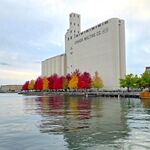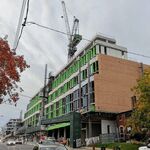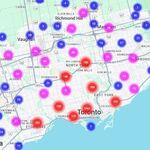Equitable Group combing through mortgage loans for possible fraud link
http://www.theglobeandmail.com/repo...oans-for-possible-fraud-link/article25968903/
Liar loans, NINJA, subprime, yup...
Equitable would be irresponsible if they had the same 45 mortgage brokers feeding them as well as Home Capital not to investigate.
I am sure there are more than 45...but given the size of the portfolios, I hardly think one can extrapolate that to conclude that the situation is rampant.
Migos, while I share your concern that prices have become stretched and I have no doubt there will be some reckoning, I do not anticipate a US style
correction. Of course the higher R/E goes, the more prices can fall.
I do believe one thing has happened though. Rightly or wrongly, it is my belief that with all the money that has been printed going into every asset class...
a lot has found its way into real estate and in Toronto and Vancouver. When the money is withdrawn from the system at some point...it will get ugly.
What I am not as sure of however, is will it come down more in Toronto and Vancouver, or will they survive better than other areas in the country because
foreigners and maybe locals believe the safest real estate market is Toronto (the financial center of the country) and Vancouver (proximity to Asia). In other words,
more of the "hot money" has been invested in TO and Vancouver to make money but as it slows will it come out in the same fashion?
I am not sure of the answer to this question. Thoughts anyone?




